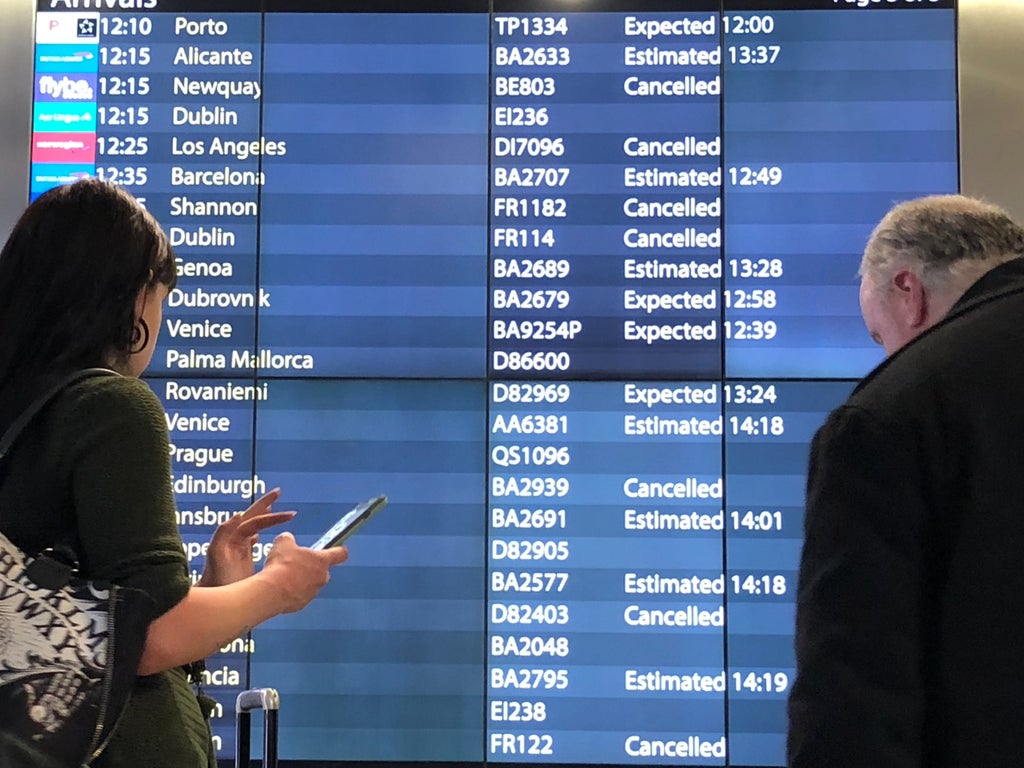
The days of £220 payouts to delayed passengers who have paid only £30 for a domestic flight may soon be over.
The Department for Transport (DfT) is consulting on proposals to overhaul the European air passengers’ rights rules for flights within the UK.
After Brexit, the legislation known as EC261 was transposed wholesale to UK law, with the only change being the conversion of compensation from euros to pounds.
At present, any flight cancellation, overbooking or delay of three hours or more arriving on a domestic flight triggers a payment of £220, unless the airline can demonstrate that “extraordinary circumstances” were responsible.
Compensation is fixed, regardless of the fare paid or whether the traveller arrives three or 24 hours late.
The plan is to align compensation with the length of the delay and the fare paid, as is the practice for rail disruption.
Partial refunds would start at just one hour’s delay. The proposed scale is:
- One hour to 1h59m: 25 per cent of ticket price
- Two hours to 2h59m: 50 per cent of ticket price
- Three hours and above: full ticket price
The overall effect is likely to cut the scale of compensation pay-outs dramatically. A passenger who pays only £30 for a domestic flight is unlikely to receive more than that.
But airlines fear that compensation could become payable regardless of the cause of delays – scrapping the “extraordinary circumstances” defence. Most train operators provide refunds for delays even if they are beyond their control.
It is not clear whether the duty of care – which makes all airlines liable for providing hotel accommodation and meals for long delays – will change.
Severe weather events can trigger costs of hundreds of thousands of pounds for airlines.
Nor is there clarity on compensation when the domestic flight is part of a longer international journey.
The transport secretary, Grant Shapps, said: “People deserve a service that puts passengers first when things go wrong, so today I’ve launched proposals which aim to bolster airline consumer protections and rights.
“We’re making the most of our Brexit dividend with our new freedoms outside of the EU, and this review will help build a trustworthy, reputable sector.”
The minister also announced an overhaul of the alternative dispute resolution scheme, to make it easier for passengers to avoid going through legal channels to get the compensation due to them, and greater powers for the Civil Aviation Authority (CAA) to demand improvements from airlines.
Richard Moriarty, chief executive of the CAA, said: “We welcome the action from the government to improve the rights of air passengers.
“This consultation is a clear indication of the need to enhance our enforcement powers, and bring us in line with other regulators.
“The proposals will improve passenger rights and equip the CAA with the appropriate tools to act swiftly and effectively for the benefit of consumers.”
The consultation will also aim to provide wheelchair users with full compensation for damage caused during a domestic flight.







